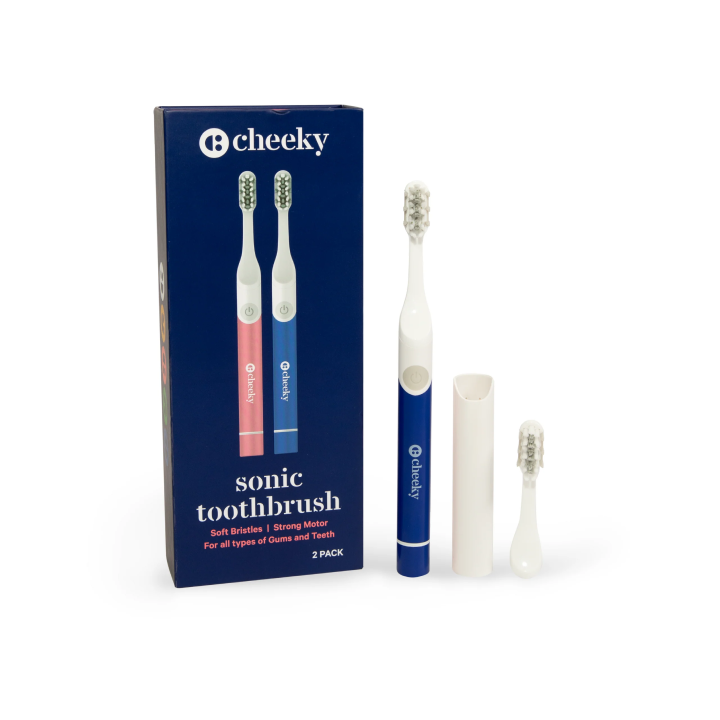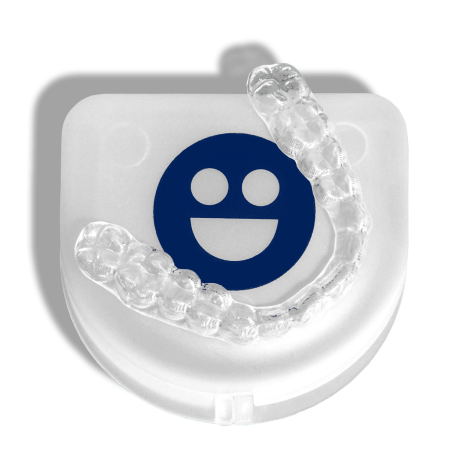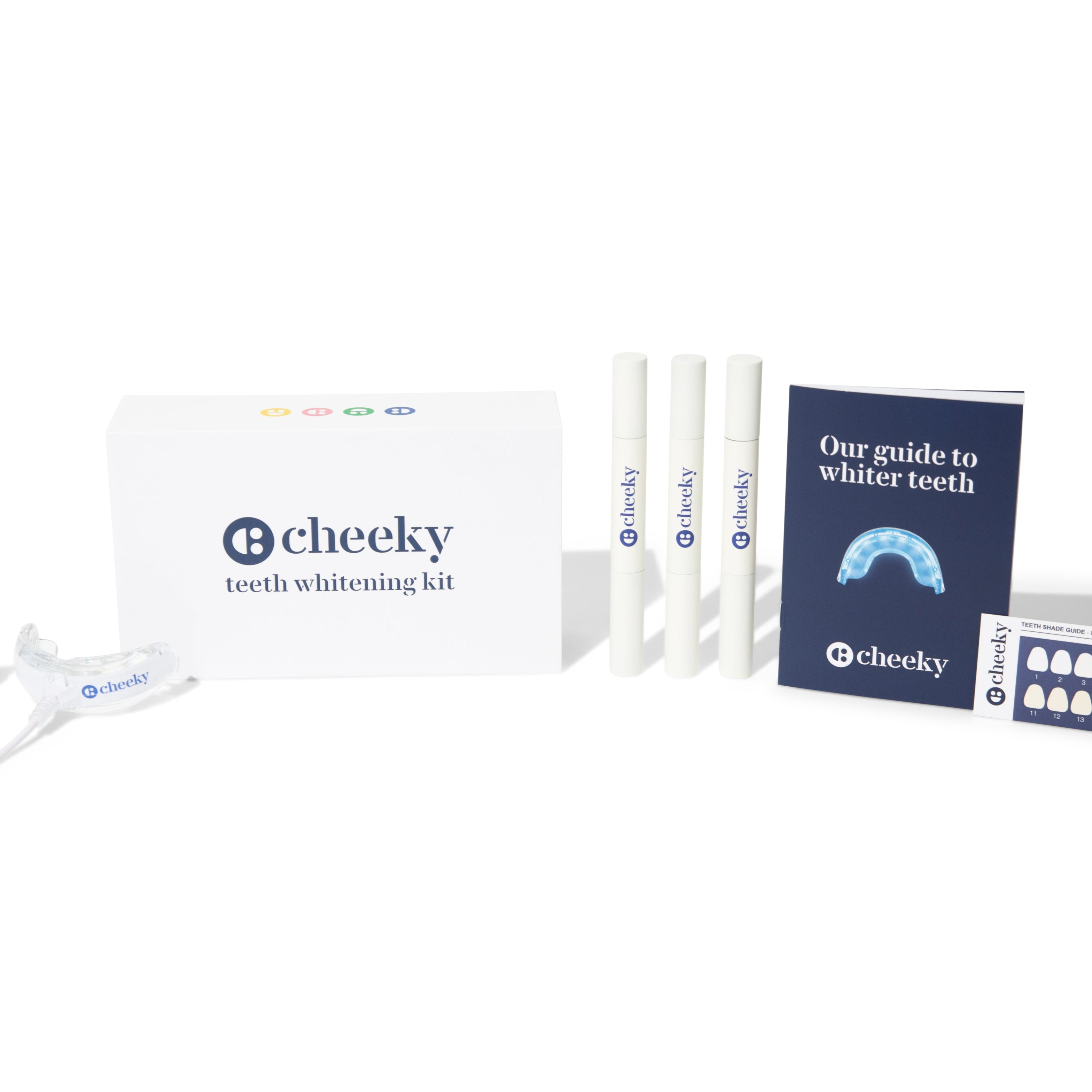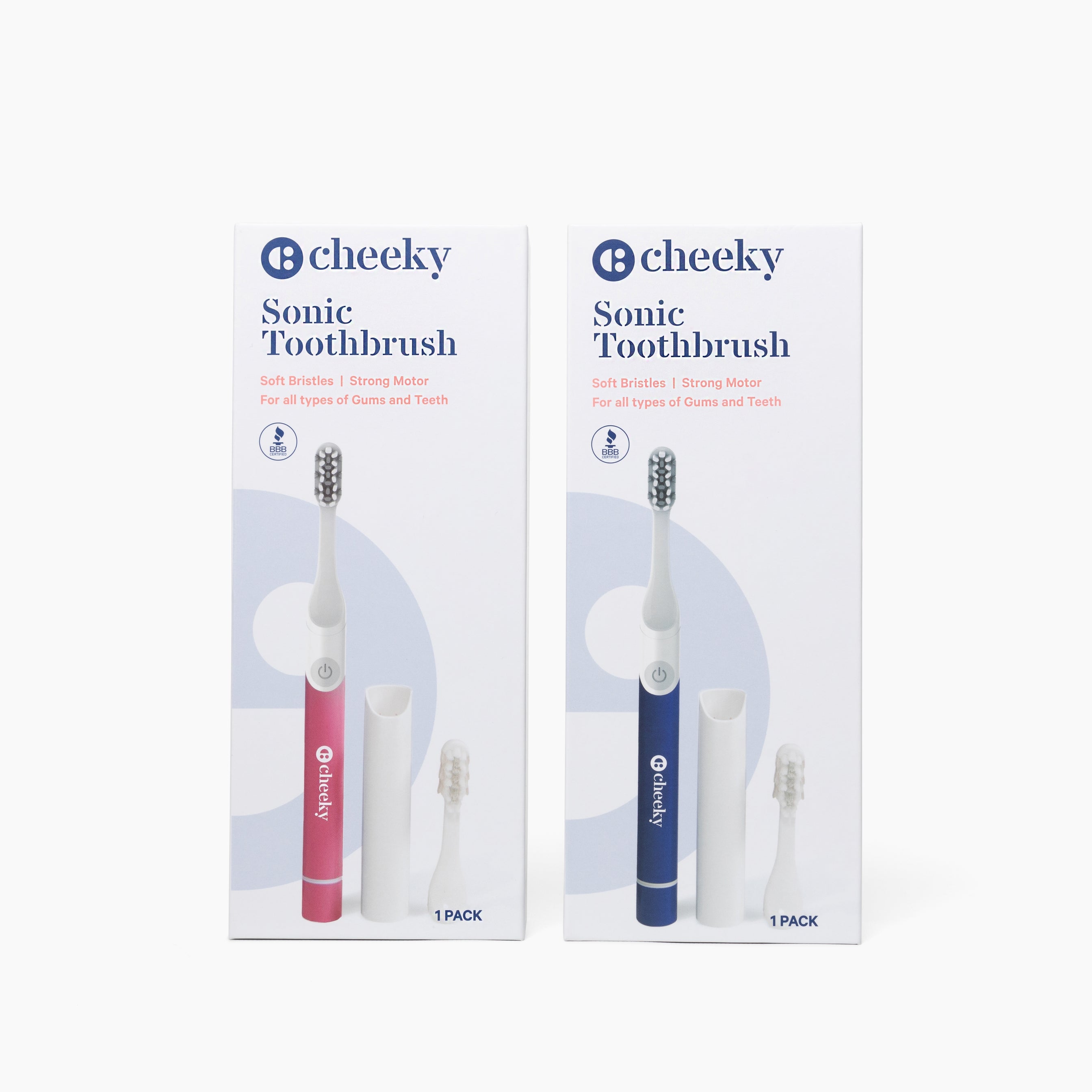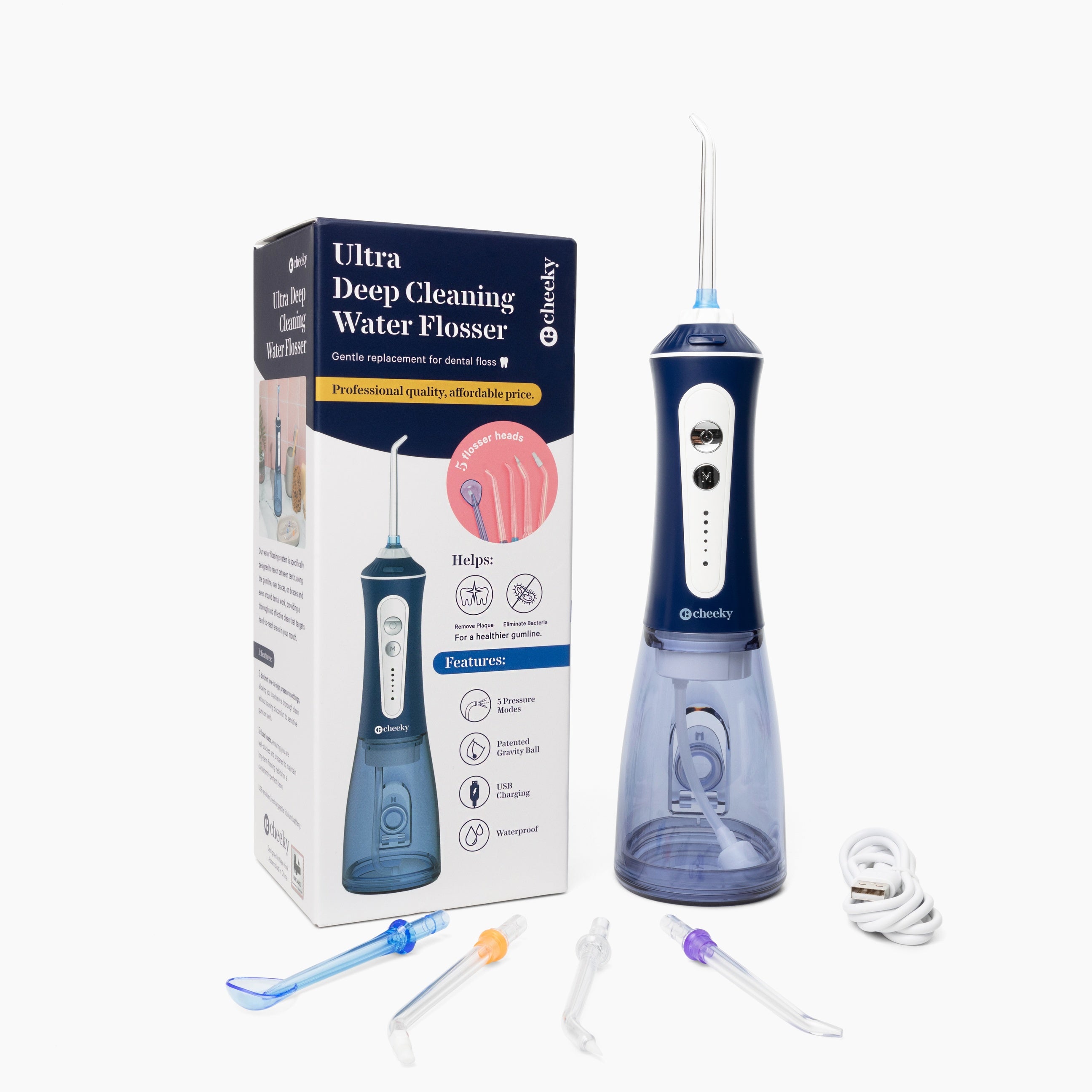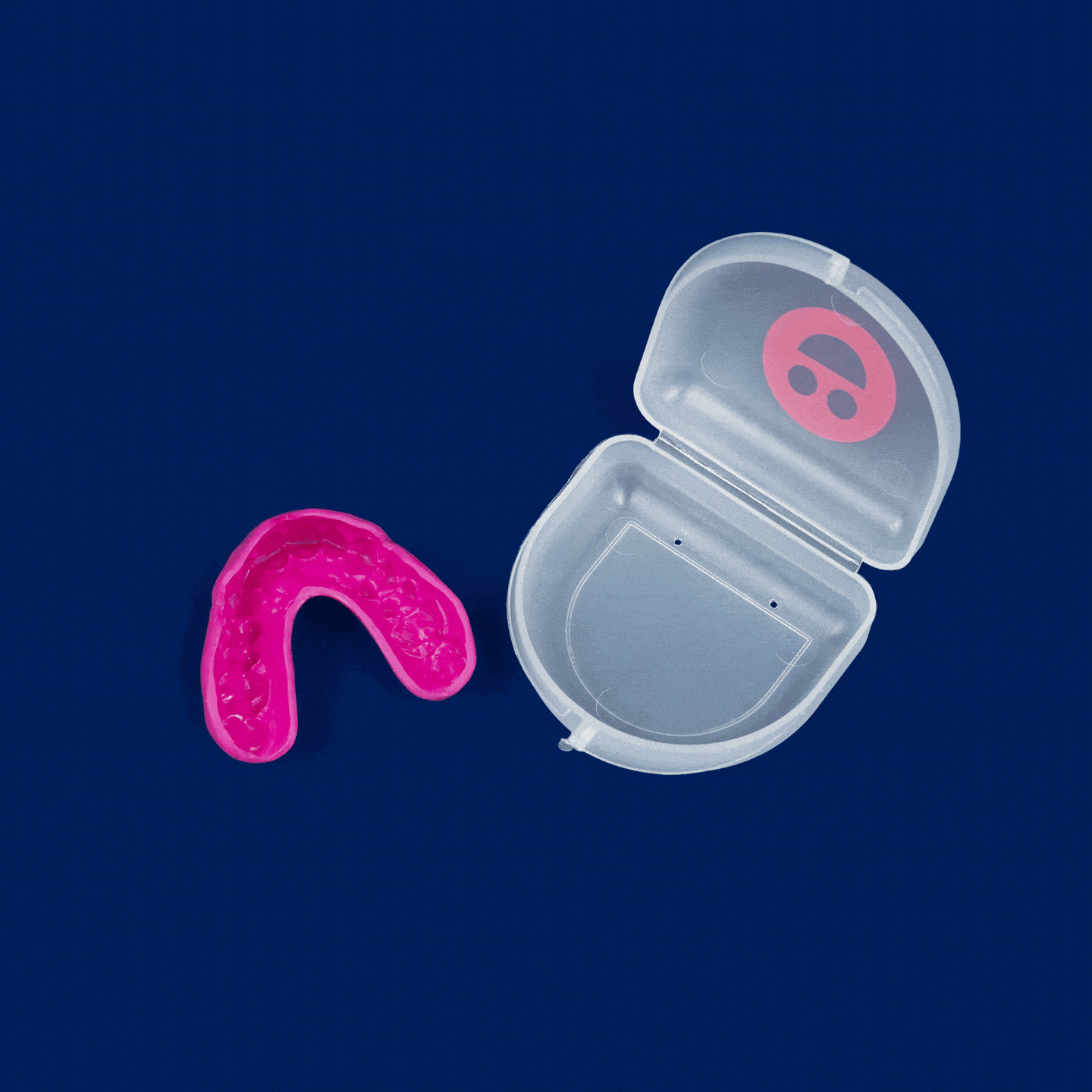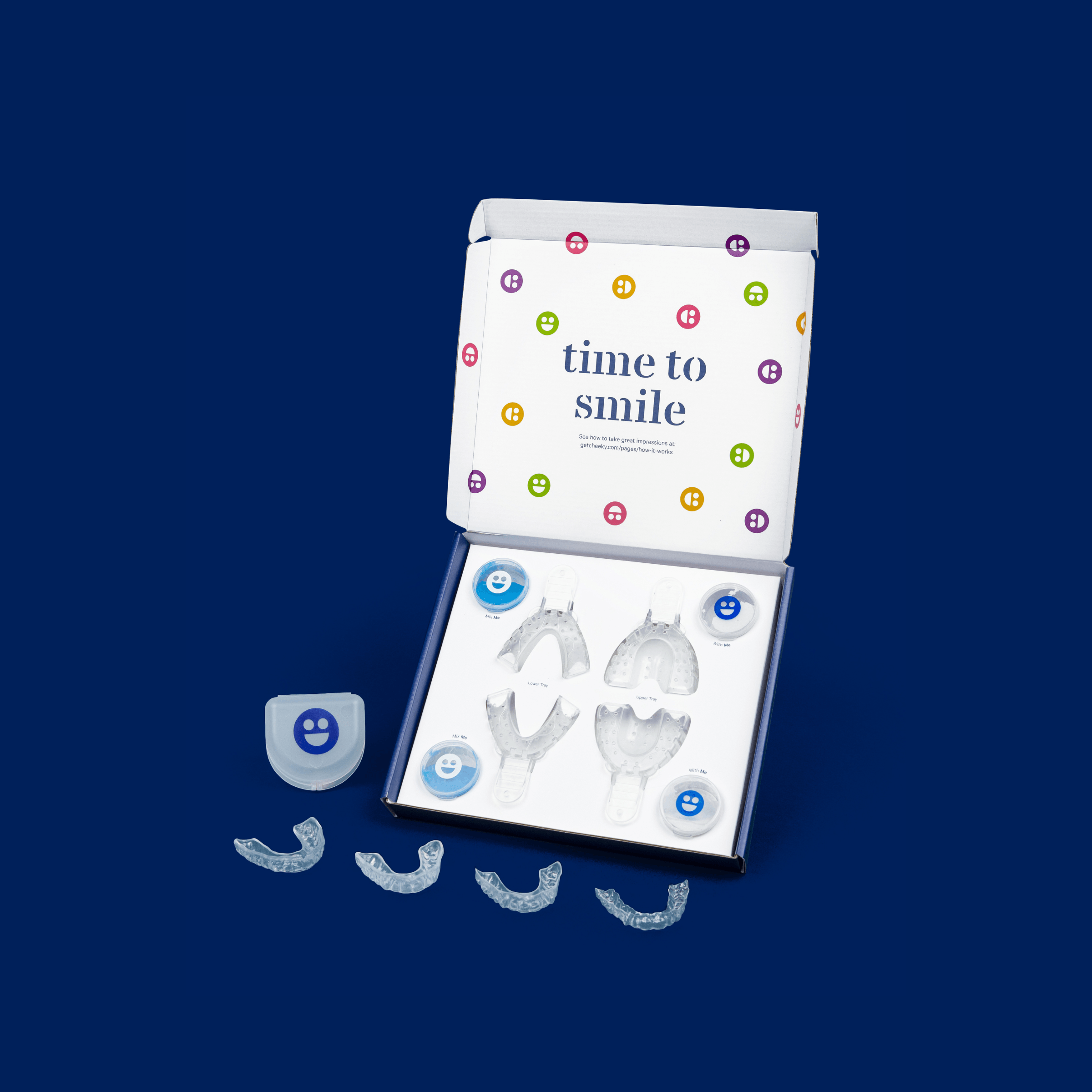While your sleep position isn’t likely to cause teeth grinding on its own, it can contribute to grinding at night. Some positions hold your spine out of alignment and increase your risk of teeth grinding or clenching. Grinding and clenching can contribute to poor TMJ health or the development of TMD over time.
If you have bruxism or are concerned that nighttime teeth grinding is interfering with your quality of sleep, it’s important to consider all the potential causes. Sleeping position is one factor that is completely under your control, so it’s a great starting point for overcoming bruxism and improving your oral health.
What Sleep Positions Contribute to Teeth Grinding?
The worst sleeping positions for bruxism are as follows:
- Flat on stomach
- Side with a hand under the pillow
These positions hold your spine out of alignment. They also put unnecessary stress on your jaw and neck. You’re more likely to grind your clench your teeth in these positions, leaving you with aches, pain, or tension in your jaw or face by morning.
It’s important to note that these positions may not cause teeth grinding on their own. They can contribute, but there are other factors that may also play a role. We’ll discuss some of those factors in a moment. For now, understand that changing your sleeping position is just one piece of the puzzle when protecting your oral health.
What Sleeping Position is Best for Bruxism?
For most people, sleeping flat on the back is best for controlling bruxism. This is the supine position, and it allows the jaw to rest naturally without any pressure pushing down on your face. Your teeth are less likely to clench or grind in this position, though it’s not impossible.
Supine position isn’t always the best option for snoring or sleep apnea, so you may need to experiment with positions if you have been diagnosed with sleep apnea. While this position is the most natural for spinal alignment and jaw positioning, it can allow your tongue to drop back, blocking your airway. Sleeping on one side is often best for sleep apnea, but that’s not necessarily best for your jaw health.
Experimentation is Critical
The best sleeping position for your oral health depends on a variety of factors. If you aren’t concerned with snoring and don’t have sleep apnea but are worried about teeth grinding or TMJ/TMD, then sleeping on your back is likely to healthiest option. If you do have other sleep disorders or concerns, then you may need to experiment to see what position works best for your body.
Ideally, you will sleep in a position that allows you to fall asleep comfortably, stay asleep all night, and wake up feeling energized with no pain. If you try sleeping on your back and find that you wake up more often or show signs of teeth grinding when you wake up in the morning, then try side sleeping. Stomach down is the last position you should try.
Other Factors that Contribute to Teeth Grinding while Sleeping
There is no single cause of bruxism, but researchers have spent a lot of time identifying factors that are likely to contribute to the condition. Some of the most likely factors include:
- Psychological stress
- Central nervous system activity
- Excessive sleep arousal response
- Autonomic nervous system activity
- Recreational drug use
- Age (more common in younger people)
- Sleep-disordered breathing
- Upper respiratory infection
- Genetics
- Some medications
- Caffeine intake prior to sleeping
Notice that many of these factors are within your control. Next, we’ll turn some of these factors into positive actions you can take to help stop nighttime teeth grinding. While none of these actions alone are guaranteed to stop bruxism, they can help improve your overall oral health.
Effective Ways to Stop Nighttime Teeth Grinding
In addition to changing your sleeping position, what can you do to protect your teeth from grinding or prevent the worsening of TMJ/TMD? We have some suggestions that you can implement right away at home:
- Invest in supportive pillows. Your pillows should support your face, jaw, and neck to ensure comfort throughout the night. If they’re too soft or thin, they won’t provide the structure you need to support your jaw all night.
- Work to reduce stress so that you don’t go to bed tense with muscles ready to clench. You can control your response to stress through meditation, yoga, and journaling through your feelings. It also helps to eliminate as much stress as possible in your work and personal relationships.
- Don’t consume caffeine within three hours of bedtime.
- Stop consuming cigarettes, alcohol, and recreational drugs, even if that requires seeking professional help.
- Ask your doctor if your prescription medications or diagnosed medical conditions may contribute to bruxism. Medications that impact the central nervous system could potentially contribute to teeth grinding.
If you improve your sleep habits and still experience symptoms of nighttime teeth grinding or TMJ/TMD, it’s time to consult with a dentist. Your dentist can evaluate your teeth to look for signs of damage caused by teeth grinding. They can also help you identify additional factors that may cause your bruxism.
A dentist can also recommend a night guard to protect your teeth and improve your oral health. There are bite guards, tooth guards, and other night guard designs that hold your jaw in proper alignment. These guards place a protective barrier between your teeth, preventing them from rubbing against one another while you sleep. These devices can spare your teeth a lot of damage and pain over time.
If you want to discuss your sleep position and other nighttime habits with a professional who understands teeth grinding, call us today. Our compassionate professionals can help you overcome bruxism and improve your oral health.
The Easy Way to Take Care of Bruxism and TMD
Cheeky makes it easy and affordable to say sayonara to the pain and tension accompanying TMD and bruxism. Never deal with gross night guards again! Our custom nightguards will give you the best night of sleep you’ve had in months.
Pick your plan and customize your nightguard with Cheeky today.


